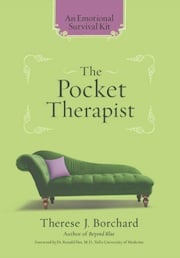 Awhile back Christina Gombar of Exhale interviewed me about pregnancy, medication, and motherhood. You can find the original interview by clicking here. Here’s what I had to say:
Awhile back Christina Gombar of Exhale interviewed me about pregnancy, medication, and motherhood. You can find the original interview by clicking here. Here’s what I had to say:
Christina: In your memoir, “Beyond Blue,” you attribute some of your relapse after a post-college, medicated recovery to a perfect storm of factors — moving, switching from on-site to at-home freelance work, the hormonal earthquakes of pregancy and post-partum, and the stresses of mother two very active, very small children. Could you elaborate a little?
Me: I think early motherhood provides the perfect storm for severe mental illness in that it combines several risk factors: sleep deprivation, social isolation, hormonal mayhem, and, for many, the loss of an important source of self-esteem (if a mom stayed home). I have never been a baby person. And I was surrounded by new moms that loved every minute of babyhood. I felt guilty for not enjoying these first days, but I was too tired to be happy about anything. David slept three hours at a time for five years. In hindsight, I realize that would drive anyone to the hospital. But at the time, all I could do was ask what in the hell I was doing so differently that this whole early motherhood thing was torture. I also took for granted all the time I had for myself before motherhood–hours that I could devote to working out, therapy, prayer and meditation, and other tools that assisted me in my recovery from depression and anxiety. As a mom of a newborn, you have zero time for yourself. So the things that kept me resilient were taken away from my schedule, and I became much more fragile. Finally, I suppose the early baby days also triggered my own childhood anxiety. I felt guilty for bringing a life into this world that might suffer like I do. David’s anxiety brought back memories of myself as a young girl crying and shaking in my mom’s arms.
Christina: When you decided to get pregnant were you on medication? If so, did you have fears about this? What advice did your Obgyn give you, if any? (I’m asking this because I have a sister who was on heavy meds for depression when she first got pregnant, went off them, became almost suicidal, and had a miscarriage. She then went on a very low dose of Prozac and had a normal pregnancy and a well-tempered baby.)
Me: Yes, I was on medication: Prozac and Zoloft. My OBGYN said that more studies had been done on Prozac, so she’d leave me on that and that I should try to wean off the Zoloft. I did that, but by four or five months of being off, my anxiety was so intense that I was starting to have preterm contractions. My OBGYN told me to go back on the Zoloft, because a mother’s anxiety is more damaging to a fetus than the risk medication. I think she’s absolutely right, because I stayed on both during Katherine’s pregnancy, and Katherine was a much calmer baby. I sense that my anxiety when I was pregnant with David may have definitely contributed to his emergency c-section and to his anxiety issues now. If I were to advise pregnant women regarding meds, I’d say that if you are doing well on them, stay on them.
Christina: Years ago, there were a lot of concerns about anti-depression meds and the effect they might have on a developing fetus. What were you told and what did you do? What is the view now?
Me: I don’t remember hearing any of that. My doctor told me that the anxiety/depression of a mother does far worse to a fetus than possible effects of medication. Again, having tried to wean myself during David’s and getting a very anxious kid, to staying on the meds with Katherine and getting a chilled out babe, makes me agree with my doctor.
Christina: Do you have any advice for women who are trying to get pregnant, but are afraid because they need to take anti-depressants or other pharmaceuticals?
Me: Personally, I wouldn’t let the medication question scare you. I guess I say that because I see so many dangers of NOT taking medication. I’ve seen lives destroyed and taken because people have been advised against medication. With mild to moderate depression and anxiety, I do think you can treat those with alternative therapies: yoga, acupuncture, meditation, herbs, massage. I think cognitive-behavioral therapy and psychotherapy are helpful for everyone. But if you have a severe mood disorder–especially bipolar or schizophrenia–I think you’re playing with fire trying to treat those with yoga and meditation. Now I’m not sure about mood stabilizers and pregnancy. I was only on antidepressants at the time. But since Lithium and others have been around for a long time, I’m sure there is plenty of research out.
This is the piece of advice I’d scream to all prospective moms: If you do have a mood disorder and know you suffer from anxiety or depression, YOU ARE GOING TO NEED EXTRA HELP. You can’t afford NOT to have time for yourself. You need to exercise, sleep, eat right, and so forth in order to stay resilient. You are going to need extra support the first year of motherhood. SO BEG FOR IT NOW. Have it in place so that you don’t have to go looking for it when you are exhausted. DON’T BE A MARTYR. Get a night nurse one or two nights a week so that you can sleep seven consecutive hours. Supplement with formula on those nights, so that you and your lactating boobs can have a night off. Sleep is your insurance against sanity. It is not a luxury. It’s an essential. Some research to back me up: during the first ten to nineteen days, new mothers were seven times more likely to be hospitalized with some form of mental illness than women with older infants. And while there has always been some data to suggest that sleep deprivation may increase a mother’s vulnerability to depression, some experts today claim that chronic sleep deprivation can, in fact, CAUSE postpartum depression. In other words, secure your oxygen mask before putting on your child’s because if you do it the other way you’ll run out of air.
* Click here to subscribe to Beyond Blue and click here to follow Therese on Twitter and click here to join Group Beyond Blue, a depression support group. Now stop clicking.

